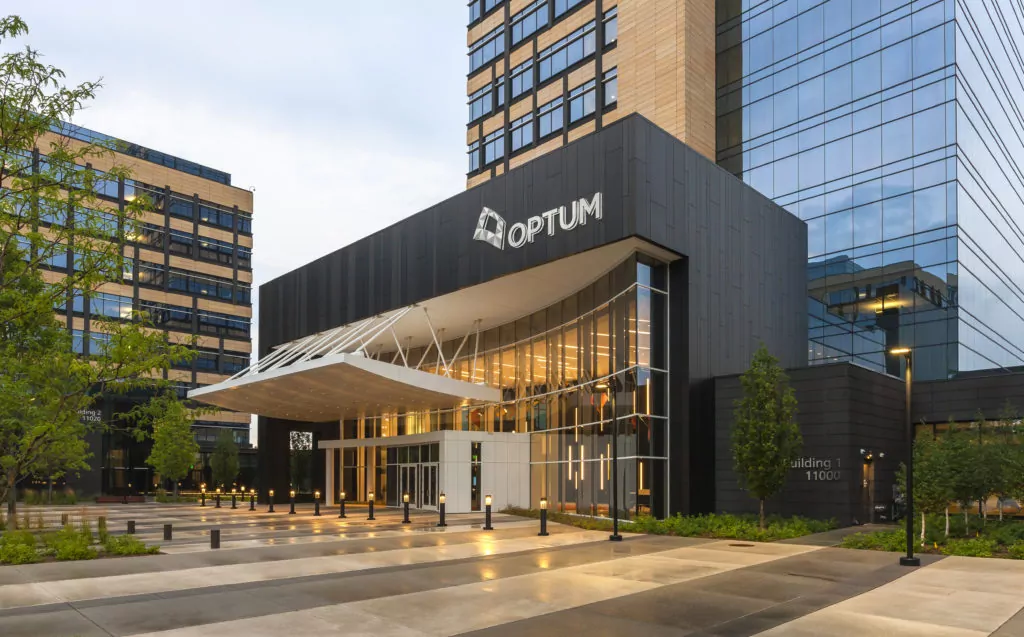UnitedHealth Group (NYSE: UNH) is doubling down on its value-based payment strategy and, in turn, further integrating behavioral health services.
The company has ramped up its value-based care efforts in its insurance arm, UnitedHealthcare, and health services division, Optum.
In UnitedHealth Group’s Q1 earnings call on Friday, it announced that Optum covers roughly 4 million lives on fully capitated models. That’s double the number of members covered on value-based contracts at the end of 2021, according to Andrew Witty, CEO of UnitedHealth Group.
Optum supports members with value-based care plans in a multi-pronged approach, with behavioral health services as a critical part of the mix.
“[Value-based care] is being supported not just by clinics. … This is a really broadly integrated support service,” Witty said during the Q1 earnings call. “This could be Optum at Home – this is in the clinic, it’s behavioral, it’s virtual. It’s a really comprehensive set of capabilities that underpin that, and we believe provides fantastic service.”
Witty noted that UnitedHealth Group has invested in infrastructure to enable value-based care contracting. Specifically, it has built up its integrated care offerings.
This includes investing in behavioral health. Optum has made several deals in this space; most notably, it purchased outpatient behavioral health provider Refresh in 2022 for over $1 billion. Refresh Health has more than 300 outpatient locations in 37 states. Its services include treatment for substance use disorder (SUD), mental health conditions, eating disorders, couples therapy, psychiatry and more.
Optum has also invested in digital behavioral health tools. In 2020, it acquired virtual mental health provider AbleTo for $470 million.
“We spent well more than a decade investing in essential infrastructure and offering extensive practice-transition support to enable tens of thousands of care providers to participate in this comprehensive value-based approach by integrating traditional ambulatory care with specialty behavioral [care], pharmacy care,” Witty said. “We’re delivering measurably better health outcomes for patients, all while improving access and lowering costs for people and the healthcare system.”
As Optum continues to build up its integrated care efforts, behavioral health professionals may see more deals like Refresh in the future, partly because it makes sense for the business as a whole.
UnitedHealth Group generates an enormous amount of cash each quarter. To maximize shareholder value, it has to deploy that cash in some capacity — it can’t just hang on to it.
With that in mind, UnitedHealth Group can either opt to grow UnitedHealthcare or its Optum arm. Growing Optum via provider acquisitions is typically the path of least resistance, considering the rapid consolidation of the insurer market and the government’s antitrust concerns.
And Optum is becoming a more significant part of UnitedHealth Group’s overall revenue generation.
UnitedHealth Group reported total consolidated revenues of $91.9 billion in the first quarter, a 15% year-over-year increase. Optum reported $54 billion in revenue, a 25% year-over-year growth. Meanwhile, UnitedHealth Group’s insurance division reported $70.4 billion in revenues, a 12.6% year-over-year increase. The company reported $32.5 billion in eliminations.
While UnitedHealth Group did not report each division’s net earnings, for the full year 2022, Optum’s net earnings were equal to United’s insurance business – a first for the company.
“Constrained by the Affordable Care Act’s medical loss ratio (MLR) requirement that health insurers must spend 80-85 percent of their revenue on medical services, payers have been pivoting to providing care, managing pharmacy benefits, and supporting other healthcare services, in order to fuel earnings growth,” a report from strategic advisory firm Gist Healthcare said.
Optum’s most recent transaction wasn’t in the behavioral health space. It was the physician group Crystal Run Healthcare.
But considering how important behavioral health is becoming – and UnitedHealth Group’s capital power – it’s likely more behavioral deals will come in 2023.
“M&A is still a large part of what we do at Refresh,” Steve Gold, CEO of Refresh, said at Behavioral Health Business’ INVEST event in October. “We’re still interested in partnering with great clinicians, psychiatrists, practice owners, who want to take their practice to the next level.”



